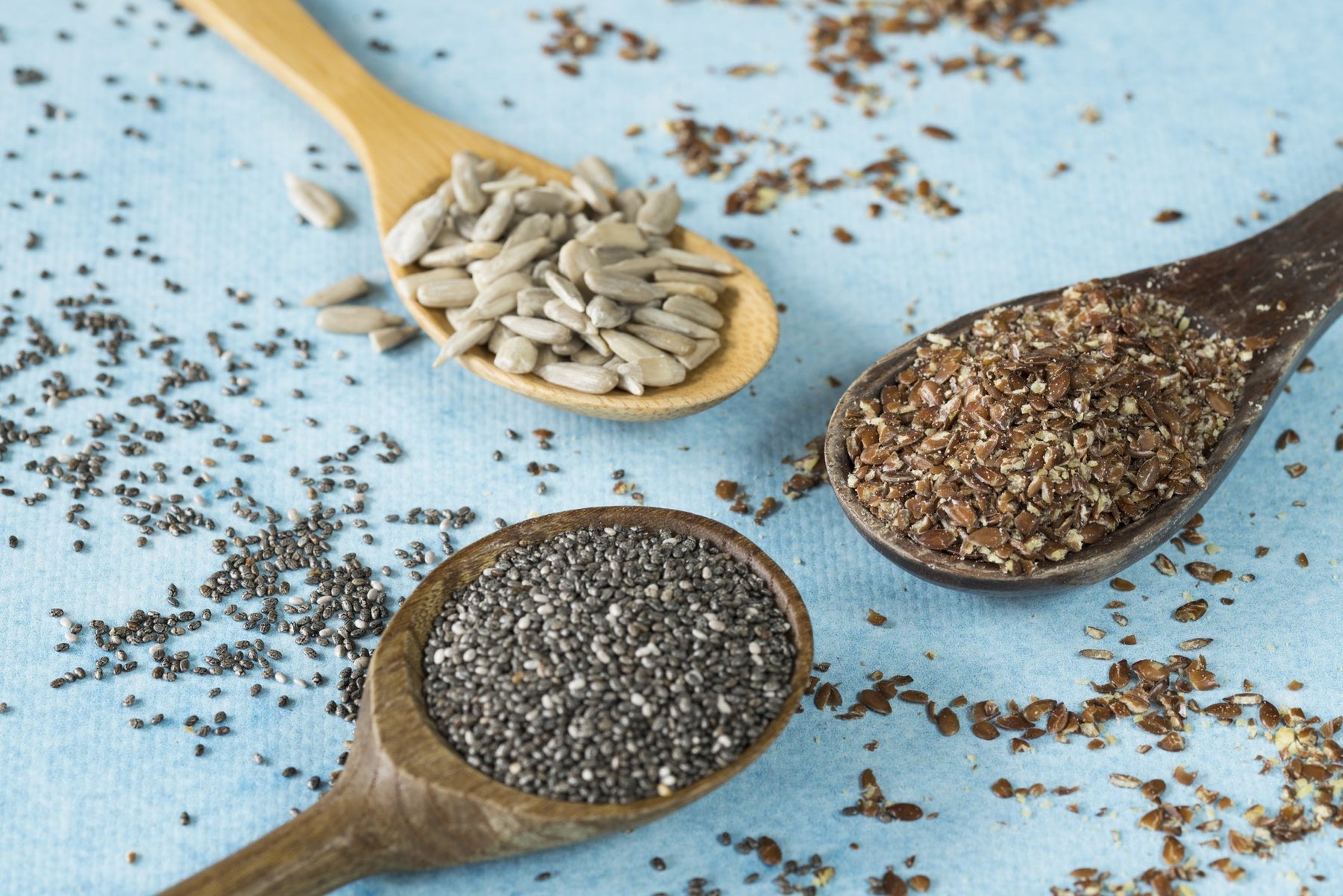
Plant-Based Essential Fatty Acids For Sports Endurance And Performance
Despite our bodies inability to self-produce certain nutrients, there are two essential fatty acids (EFAS) which are crucial for good health: alpha-linolenic acid, an omega-3 fat, and linoleic acid, an omega-6 fat.
These fats have a direct effect on our immune system, brain, nerves, and eyes, but are even more beneficial for sportsmen and women. EFAs help battle inflammation, reducing joint pain and tenderness, and therefore bettering sports endurance. They also help keep the lining of your arteries clear, which, according to HealthEssentials: "Allows the maximal amount of oxygen-rich blood to reach your working muscles."
Whilst EFAs are often associated with animal products such as fish, eggs, and dairy, it is not necessary to consume these foods to meet the daily recommended intake, as there are a variety of plant-based foods rich in these nutrients.
Alpha-Linolenic Acid
Commonly referred to as ALA, alpha-linolenic acid is found in seeds such as chia, flaxseed, and hemp. According to SELF Nutrition Data, 28g of chia seeds can meet and exceed your daily recommended intake of omega-3 fatty acids, delivering an estimated 4,915 mg.
The Vegan Society also recommend cooking foods using rapeseed oil, as well as consuming certain omega-3 rich foods such as walnuts.
Linoleic Acid
Otherwise known as LA, linoleic acid is easily obtained from foods such as hemp, pumpkin, and sunflower seeds, as well as dairy-free alternatives such as soy-based margarine.
Balancing The Fats
It's important to balance your intake of omega-3 and omega-6 fats because our bodies can turn ALA into other omega-3 fats such as EPA and DHA. However, consuming too much LA can hinder this process, which could result in not having enough omega-3 in our blood.
Considering this, The Vegan Society recommends cooking with rapeseed oil, oppose to sunflower or hemp - as these foods are rich in ALA.
Supplements
For those following a plant-based diet, void of any animal products, it can sometimes be difficult to consume, and balance, our essential fatty acids. Therefore, some nutritionists encourage vegans to take a microalgae supplement containing both EPA and DHA. Research involving the
supplementation of omega-3 fats has been described as 'limited' - with some professionals arguing there is not enough evidence to suggest that vegans should take DHA supplements.
Heather Russell, a Dietitian for The Vegan Society, states: "We need more research around omega-3 fat status in vegans and the effects of microalgae supplementation on vegan health. Although it’s not thought to be essential for vegans to add long-chain omega-3 fats to their diets by taking a microalgae supplement, it’s a more important consideration during pregnancy, breastfeeding, and childhood due to the role of these fats in brain, nerve, and eye development."
Deficiency
Although it's rare, the symptoms of being deficient in EFAs is extensive. And there are certain side effects that will negatively impact sports endurance and performance.
Stiff or painful joints, joint discomfort, difficulty to concentrate, and feelings of fatigue can all occur if a person isn't consuming enough EFAs.
